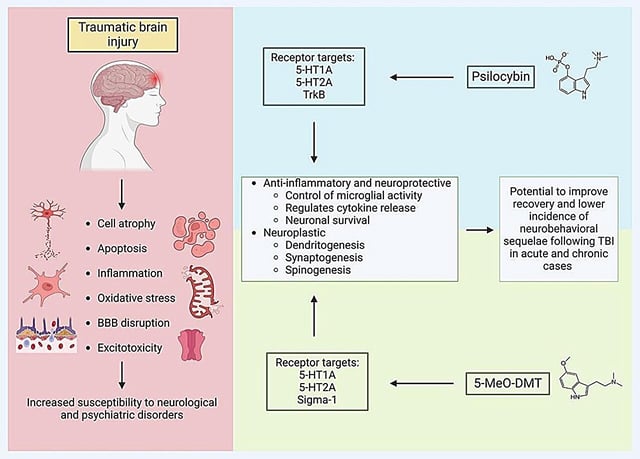Overview
- Published August 30 in Progress in Neuro‑Psychopharmacology and Biological Psychiatry, the review synthesizes preclinical and early clinical studies from the Christie Lab and collaborators.
- It concludes the compounds may curb prolonged neuroinflammation and boost neuroplasticity, helping the injured brain reorganize after trauma.
- Proposed mechanisms include psilocybin effects via 5‑HT1A/5‑HT2A and TrkB receptors, with 5‑MeO‑DMT acting on sigma‑1 receptors linked to neuroprotection.
- The authors note an estimated 69 million people suffer traumatic brain injuries each year, with few treatments and no approved pharmacotherapies.
- Backed by Canadian Institutes of Health Research funding, the team calls for controlled TBI trials and evaluation of moderators such as age, sex, prior injuries and comorbid conditions.



